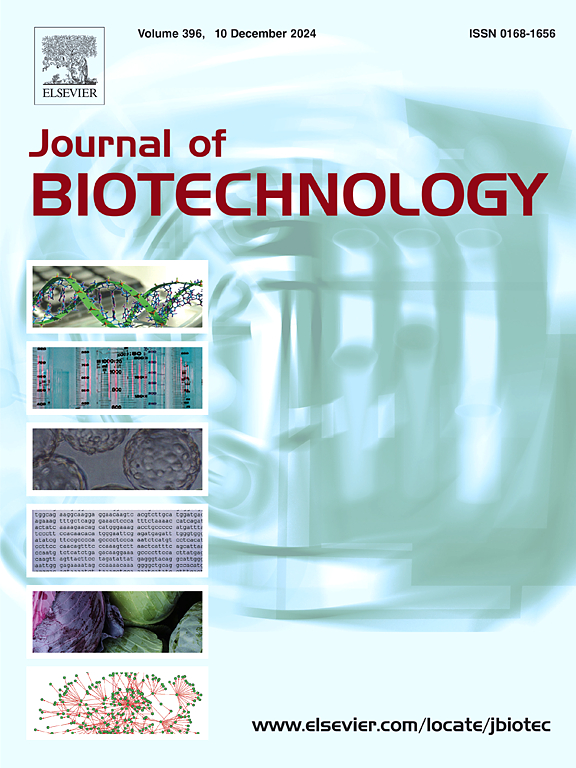IF 4.1
2区 生物学
Q2 BIOTECHNOLOGY & APPLIED MICROBIOLOGY
引用次数: 0
摘要
甘蔗渣管理是世界各地蒸馏厂面临的最大挑战之一。甘蔗渣可用于作物施肥,但需要事先进行调节处理。本研究调查了原蔗渣(V0)和经丝状真菌曲霉 V2(Vt)生物处理的蔗渣灌溉对小麦(Triticum aestivum L.)生长、土壤养分补充和土壤酶活性的短期影响。此外,还分析了商用化肥(NPK)和水龙头(Wt)对研究参数的影响。与 V0、NPK 和 Wt 相比,用 Vt 施肥对小麦有积极影响,能提高所有植物生长参数。与其他测试溶液相比,使用 Vt 进行施肥还能使土壤发生积极变化,有利于补充有机物和养分,如钾(K)、磷(P)和镁(Mg)。此外,土壤酶(尤其是脱氢酶)对测试的施肥条件的变化做出了不同的反应,为系统质量提供了可靠的信息。这些结果表明,基于真菌的预处理可改善蔗渣的农业用途特性,有助于推动生物基循环经济的发展。本文章由计算机程序翻译,如有差异,请以英文原文为准。
Short-term effect of biologically treated sugarcane vinasse on the growth of Triticum aestivum L. (wheat) and soil properties
Sugarcane vinasse management is one of the biggest challenges of distilleries around the world. Vinasse can be used for crop fertigation, but it requires a prior conditioning treatment. This study investigates the short-term effect of the fertigation with raw vinasse (V0) and vinasse biologically treated with the filamentous fungus Aspergillus sp. V2 (Vt) on the growth of Triticum aestivum L. (wheat), soil nutrient replenishment and soil enzyme activities. Effects of commercial chemical fertilizer (NPK) and water tap (Wt) on the parameters studied were also analyzed. The fertigation with Vt had positive effects on wheat, increasing all the plant growth parameters compared with V0, NPK and Wt. Fertigation with Vt also induced positive changes in soil with respect to the other solutions tested, favoring the replenishment of organic matter and nutrients such as potassium (K), phosphorous (P), and magnesium (Mg). Moreover, soil enzymes (particularly dehydrogenase enzyme) responded differentially to changes in the fertigation conditions tested, providing reliable information on system quality. These results demonstrate that a fungal-based pretreatment improves the vinasse properties for agricultural uses, contributing to the advance towards a bio-based circular economy.
求助全文
通过发布文献求助,成功后即可免费获取论文全文。
去求助
来源期刊

Journal of biotechnology
工程技术-生物工程与应用微生物
CiteScore
8.90
自引率
2.40%
发文量
190
审稿时长
45 days
期刊介绍:
The Journal of Biotechnology has an open access mirror journal, the Journal of Biotechnology: X, sharing the same aims and scope, editorial team, submission system and rigorous peer review.
The Journal provides a medium for the rapid publication of both full-length articles and short communications on novel and innovative aspects of biotechnology. The Journal will accept papers ranging from genetic or molecular biological positions to those covering biochemical, chemical or bioprocess engineering aspects as well as computer application of new software concepts, provided that in each case the material is directly relevant to biotechnological systems. Papers presenting information of a multidisciplinary nature that would not be suitable for publication in a journal devoted to a single discipline, are particularly welcome.
 求助内容:
求助内容: 应助结果提醒方式:
应助结果提醒方式:


